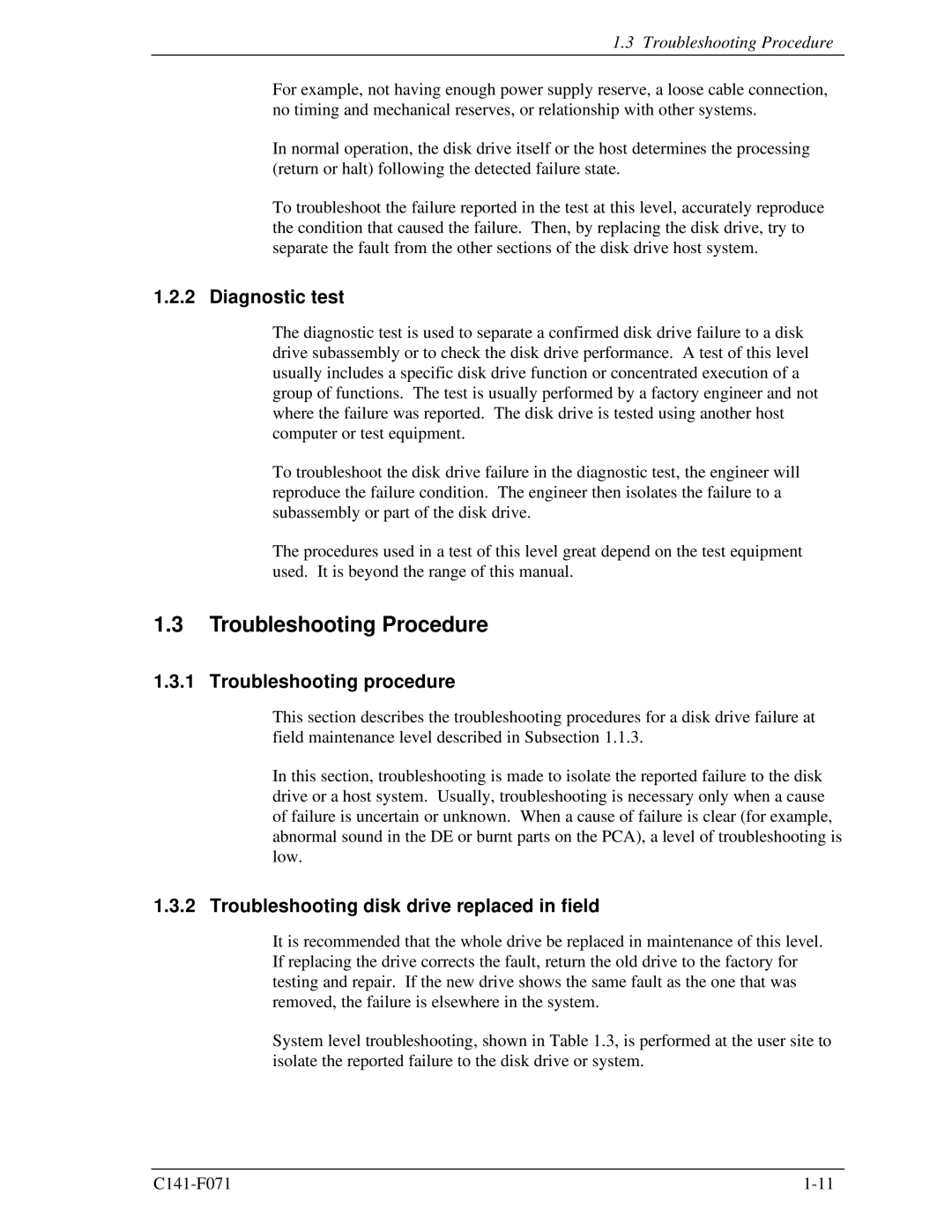MHV2040AH, MHV2080AH, MHV2060AH, MHV2100AH specifications
The Fujitsu MHV series of hard disk drives, specifically the MHV2060AH, MHV2080AH, MHV2100AH, and MHV2040AH, are renowned for their reliability and performance in the mobile HDD segment. Designed primarily for use in laptops and other portable devices, these drives integrate cutting-edge technologies to meet the demands of today's data-intensive applications.One of the hallmark features of the MHV series is its high data density, allowing for substantial storage capabilities in compact sizes. The MHV2060AH offers a storage capacity of 60 GB, while the MHV2080AH and MHV2100AH offer 80 GB and 100 GB respectively. The MHV2040AH provides a slightly more modest but still robust 40 GB of storage. This range of capacities ensures that users can select the model that best fits their storage needs.
The drives utilize the latest perpendicular magnetic recording (PMR) technology, which enhances recording efficiency and increases data storage densities. This technology significantly optimizes the use of disk surface area, providing better performance and more reliable data access. Additionally, the MHV series incorporates an advanced actuator system that ensures precision head positioning, enhancing data integrity and reducing error rates during read and write operations.
In terms of performance, the MHV series maintains a revolutions per minute (RPM) rating of 5400, which strikes a balance between speed and energy efficiency, making these drives suitable for low-power applications. The drives are also designed with a low acoustic level, generating minimal noise during operation—a crucial factor for mobile users who prefer quieter devices.
Furthermore, the Fujitsu MHV series features a robust shock resistance design, allowing them to withstand the rigors of mobile computing. This makes them suitable for use in portable environments subject to vibration and physical movement, thus ensuring data security and drive longevity.
Overall, the Fujitsu MHV2060AH, MHV2080AH, MHV2100AH, and MHV2040AH represent a formidable selection of mobile hard disk drives filled with advanced technologies and features, making them well-suited for a wide range of applications in today's fast-paced digital world. With their combination of storage capacity, performance, and durability, these drives continue to serve as reliable solutions for users seeking efficient data storage in portable formats.

